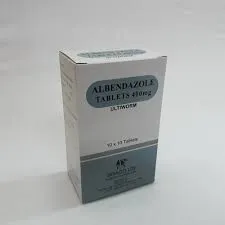- Afrikaans
- Albanian
- Amharic
- Arabic
- Armenian
- Azerbaijani
- Basque
- Belarusian
- Bengali
- Bosnian
- Bulgarian
- Catalan
- Cebuano
- Corsican
- Croatian
- Czech
- Danish
- Dutch
- English
- Esperanto
- Estonian
- Finnish
- French
- Frisian
- Galician
- Georgian
- German
- Greek
- Gujarati
- Haitian Creole
- hausa
- hawaiian
- Hebrew
- Hindi
- Miao
- Hungarian
- Icelandic
- igbo
- Indonesian
- irish
- Italian
- Japanese
- Javanese
- Kannada
- kazakh
- Khmer
- Rwandese
- Korean
- Kurdish
- Kyrgyz
- Lao
- Latin
- Latvian
- Lithuanian
- Luxembourgish
- Macedonian
- Malgashi
- Malay
- Malayalam
- Maltese
- Maori
- Marathi
- Mongolian
- Myanmar
- Nepali
- Norwegian
- Norwegian
- Occitan
- Pashto
- Persian
- Polish
- Portuguese
- Punjabi
- Romanian
- Russian
- Samoan
- Scottish Gaelic
- Serbian
- Sesotho
- Shona
- Sindhi
- Sinhala
- Slovak
- Slovenian
- Somali
- Spanish
- Sundanese
- Swahili
- Swedish
- Tagalog
- Tajik
- Tamil
- Tatar
- Telugu
- Thai
- Turkish
- Turkmen
- Ukrainian
- Urdu
- Uighur
- Uzbek
- Vietnamese
- Welsh
- Bantu
- Yiddish
- Yoruba
- Zulu
Nov . 09, 2024 10:19 Back to list
Guidelines for Administering Ivermectin Safely to Dogs at Home
How to Inject Ivermectin in Dogs A Guide for Pet Owners
Ivermectin is a powerful antiparasitic medication commonly used in veterinary medicine to treat a variety of conditions in dogs, from heartworm prevention to the treatment of certain external and internal parasites. This article will guide you through the necessary steps to safely inject ivermectin in dogs, but always consult your veterinarian before administering any medication.
Understanding Ivermectin
Ivermectin is effective against a range of parasites, including roundworms, mites, and some forms of ticks. It works by interfering with the nervous systems of these parasites, causing paralysis and death. It is vital to highlight that ivermectin is toxic to certain breeds of dogs, such as Collies, and should never be given without professional guidance.
When to Use Ivermectin
Before administering ivermectin, determine whether it is necessary for your pet. Common reasons to use ivermectin include
- Heartworm Prevention Monthly doses for dogs at risk of heartworm disease. - Treatment of Mites Certain skin conditions caused by mites can be treated with ivermectin. - Dealing with Other Parasites Other internal and external parasites may also be targeted.
Dosage Calculation
The dosage of ivermectin varies depending on the condition being treated and the dog’s weight. It is essential to have an accurate scale for weighing your dog. The general dosing guideline for heartworm prevention is typically 6 micrograms per kilogram of body weight. However, this can vary. Always refer to your veterinarian for the correct dosage specific to your dog's needs.
Preparing for the Injection
how to inject ivermectin in dogs

2. Choose the Injection Site Ivermectin can be administered subcutaneously (under the skin) or intramuscularly. Common sites for subcutaneous injections are behind the neck or between the shoulder blades. For intramuscular injections, the thigh or hind leg is often preferred.
Administering the Injection
1. Prepare Your Dog Make sure your dog is calm and comfortable. You may want another person to help you hold the dog if needed.
2. Clean the Injection Site Use an alcohol swab to clean the area where you’ll inject. This helps to prevent infection.
3. Draw the Ivermectin If using a syringe, draw the appropriate amount of ivermectin from the vial. Make sure there are no air bubbles in the syringe by tapping it gently and pushing the plunger slightly.
4. Inject the Ivermectin - For subcutaneous injections, pinch the skin at the injection site and insert the needle at a 45-degree angle. Inject the ivermectin slowly. - For intramuscular injections, insert the needle into the muscle of the thigh at a 90-degree angle and inject slowly.
5. After the Injection Once the medication is injected, remove the needle and gently massage the area with a cotton ball or gauze. This helps disperse the medication and reduces discomfort.
6. Monitoring After administering ivermectin, keep an eye on your dog for any adverse reactions, which may include swelling, difficulty breathing, or lethargy. If you notice any alarming symptoms, contact your veterinarian immediately.
Conclusion
Injecting ivermectin in dogs can be a straightforward process when done with care and caution. However, it must be emphasized that this medication should only be given under the guidance of a qualified veterinarian. Always consider your dog’s health history and breed predispositions before proceeding. Regular check-ups and consultation with your vet will ensure that your furry friend stays safe and healthy. If you are ever uncertain, never hesitate to seek professional advice.
-
Guide to Oxytetracycline Injection
NewsMar.27,2025
-
Guide to Colistin Sulphate
NewsMar.27,2025
-
Gentamicin Sulfate: Uses, Price, And Key Information
NewsMar.27,2025
-
Enrofloxacin Injection: Uses, Price, And Supplier Information
NewsMar.27,2025
-
Dexamethasone Sodium Phosphate Injection: Uses, Price, And Key Information
NewsMar.27,2025
-
Albendazole Tablet: Uses, Dosage, Cost, And Key Information
NewsMar.27,2025













